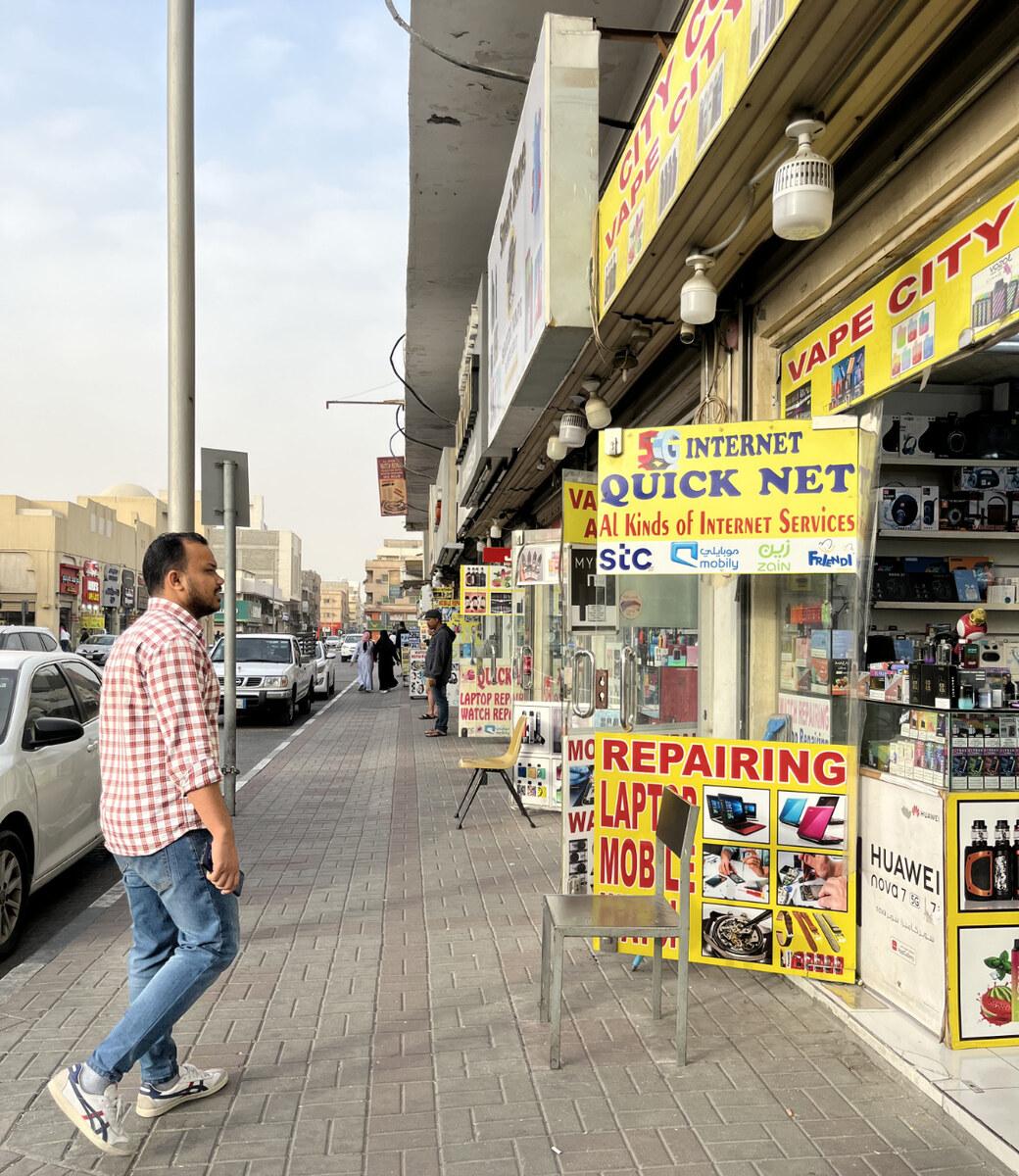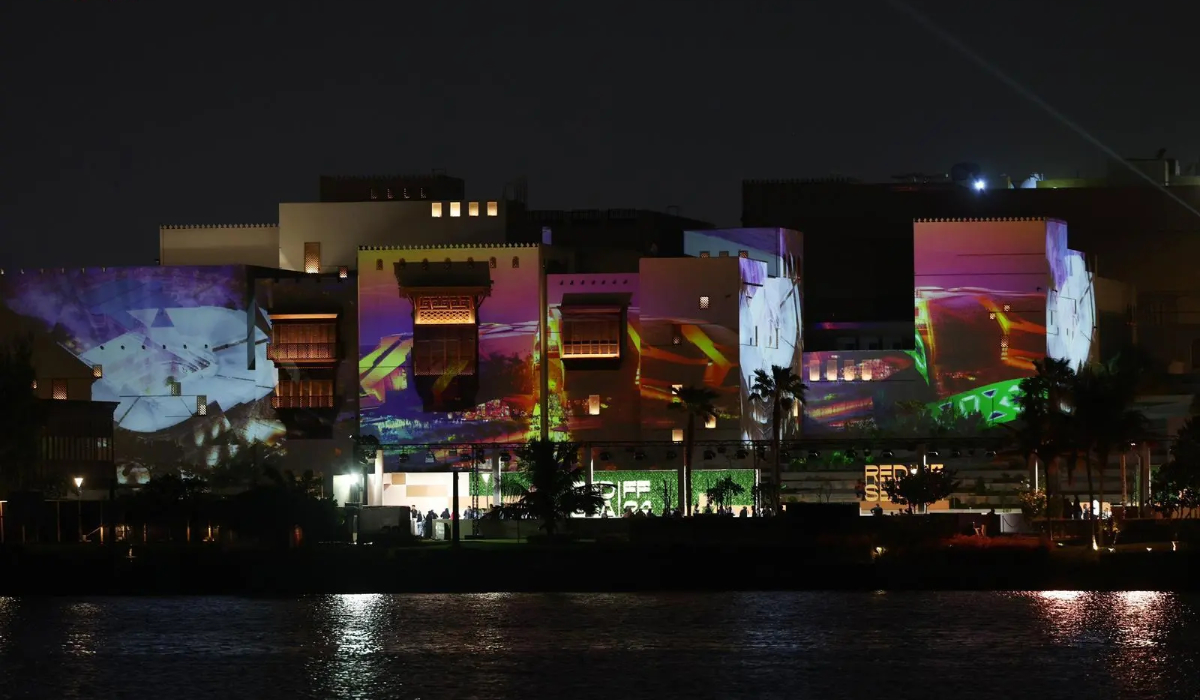RIYADH: In an era marked by digital convenience, analog technology is steadily making a comeback, with everything from vinyl records to film cameras experiencing a renaissance around the Kingdom.
Driven by a blend of nostalgia, artistry, and an appreciation for the tactile, this resurgence reflects a deeper cultural shift toward mindfulness and intentionality.
Arab News spoke to enthusiasts and entrepreneurs about the beauty, challenges, and personal connections that analog offers over its digital counterparts.
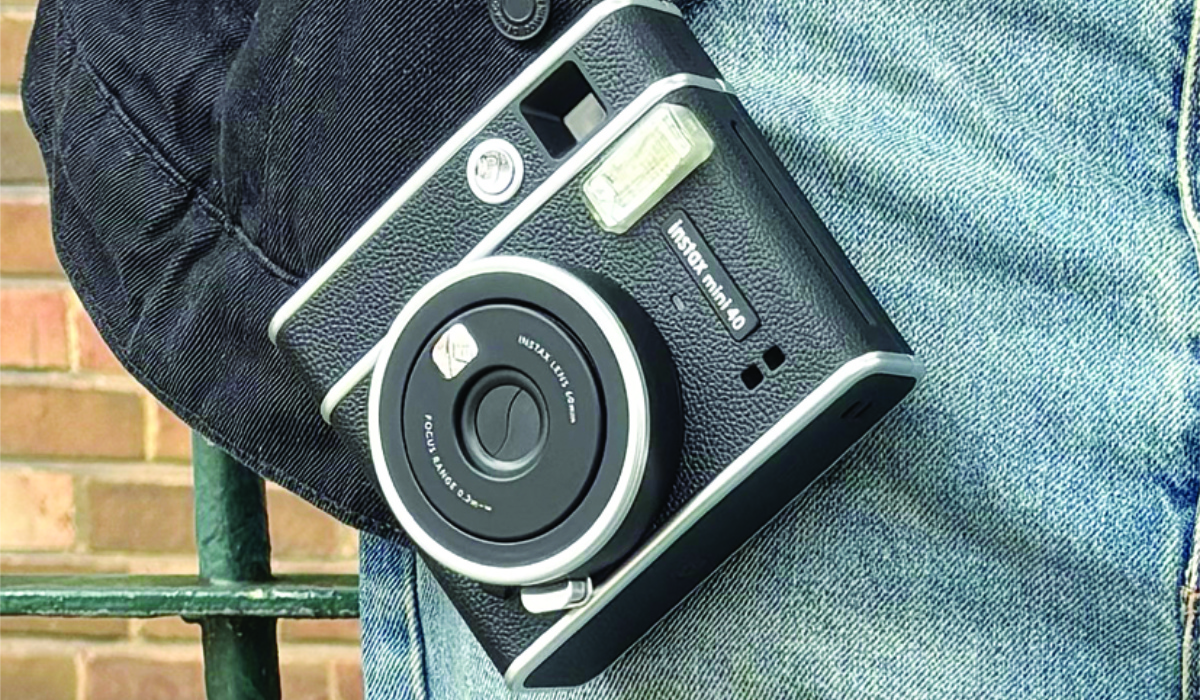
The resurgence of analog formats is a reminder that technology can be more than just a tool. (AN photo by Waad Hussain)
For music lovers, vinyl offers an experience that is impossible to replicate digitally. Fawaz Al-Sulaim, owner of Bohemia Records, said: “Experiencing music through vinyl or cassette brings you closer to it, like you’re there with the artists in the studio. You go through every song on the album as intended.”
Vinyl’s allure lies not just in its sound but also in its tangible presence. Holding a vinyl record offers a sense of ownership often missing in digital music, where ownership is more of a fleeting license.
Al-Sulaim said: “Analog represents physical media coming back — not just in a technical sense but as something people can hold on to.”
HIGHLIGHTS
• As Saudi Arabia invests in art, culture, and heritage, there is hope that analog’s value will continue to be recognized and supported.
• With the rise in interest, local communities and businesses are emerging to cater to this renewed passion for analog.
This revival is not limited to vinyl. Bohemia Records has seen an increase in CD sales, suggesting that physical formats resonate with people’s desire to own and cherish music collections.
The appeal of analog does not stop at music. In photography, the return to film presents a refreshing contrast to digital’s immediacy.
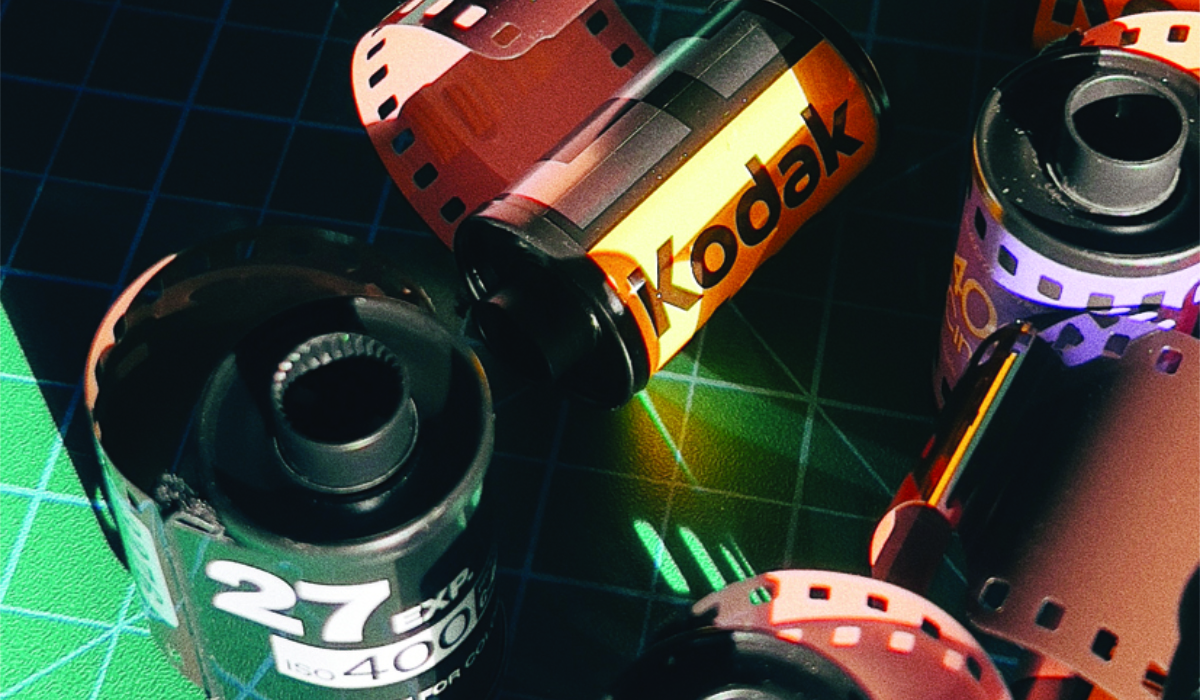
Film rolls ready for development at Haitham Studio Film Lab, where each roll holds captured memories and stories from Saudi photographers. (Photo by Abdulrahman Al-Osaimi)
Haitham Al-Sharif, founder of Haitham Studio Film Lab in Riyadh, spoke to Arab News about film photography’s unique character, saying: “Film requires patience, thought, and a connection with the moment. You’re fully present, considering every exposure.”
Al-Sharif, who began his film processing journey at home, has seen a surge in Saudi interest, with his studio now serving thousands across the Gulf region.
Haitham Studio’s clients include people from seasoned photographers to students experimenting with their parents’ vintage cameras.

An eclectic display of analog nostalgia and rock memorabilia, featuring classic vinyl records, retro audio equipment, and books on music icons—capturing the spirit of vintage and punk culture. (AN photo by Waad Hussain)
He said: “People come in for graduations, weddings, and even casual shots with disposable film cameras. Each frame has meaning, and the photographer remembers every shot.”
Running a film lab, however, is not without challenges. “We rely on older machines, specialized chemicals, and skilled technicians, which aren’t always easy to source locally,” Al-Sharif explained, adding that the support of Saudi Arabia’s growing art and tourism sectors could enhance this particular industry’s growth.
For retro tech enthusiasts like Zain Al-Mansour, the appeal goes beyond functionality. He said: “Listening to music on vinyl or snapping pictures with a vintage camera offers a joy that’s similar to making espresso — you savor the process as much as the end result.”
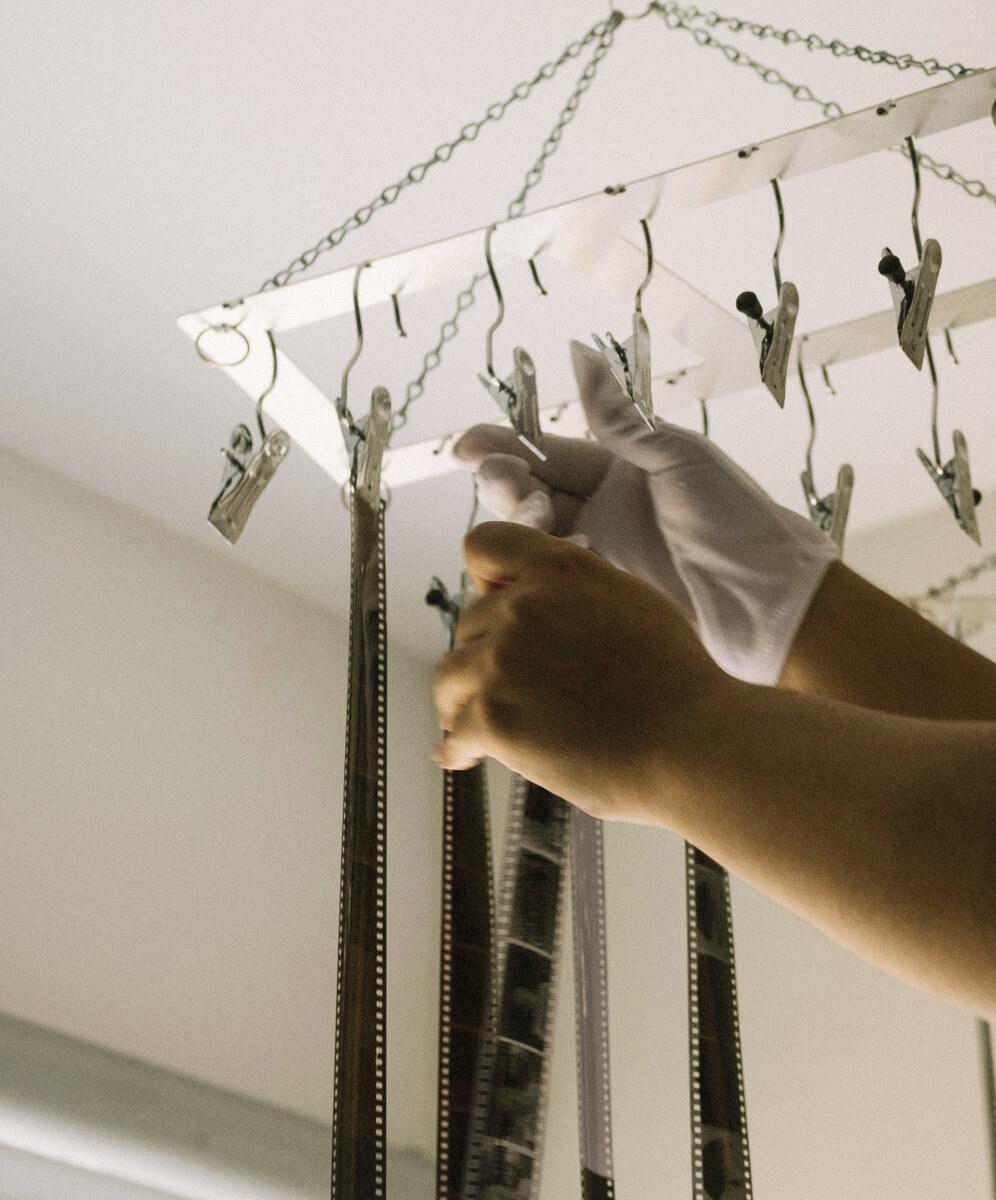
Film negatives hang to dry at Haitham Studio, reflecting the lab’s dedication to preserving the authenticity and art of analog photography. (Photo by Abdulrahman Al-Osaimi)
With an affinity for devices that evoke memories, Al-Mansour recently acquired a first-generation Tamagotchi, to help rediscover the simplicity and wonder of childhood technology.
Analog devices engage users on a personal level, prompting a more deliberate interaction than today’s instant gratification.
Al-Mansour said: “Retro tech is fascinating because it takes you back to a simpler time. The aesthetics of these devices, the physicality, and even the sounds they make add to their charm.”
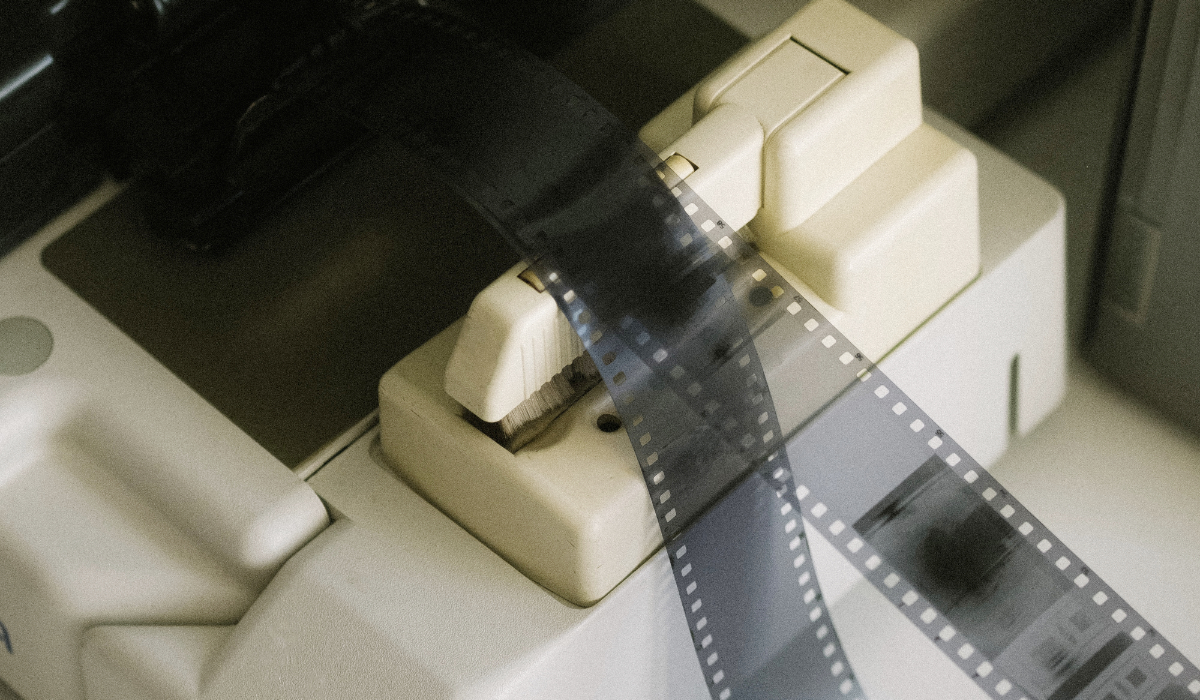
A film negative passes through the scanning machine at Haitham Studio, bridging the analog and digital worlds to bring treasured moments to life. (Photo by Abdulrahman Al-Osaimi)
For others, analog represents a form of self-expression. Bashayer Al-Bloushi sees a unique beauty in analog’s imperfections, which bring out details often missed in digital formats.
“Film photography forces you to capture moments with intention. There’s no instant review, so you’re careful about each frame,” she said.
For Al-Bloushi, analog provides a richer experience that digital cannot offer, allowing for a deeper connection to each captured moment.
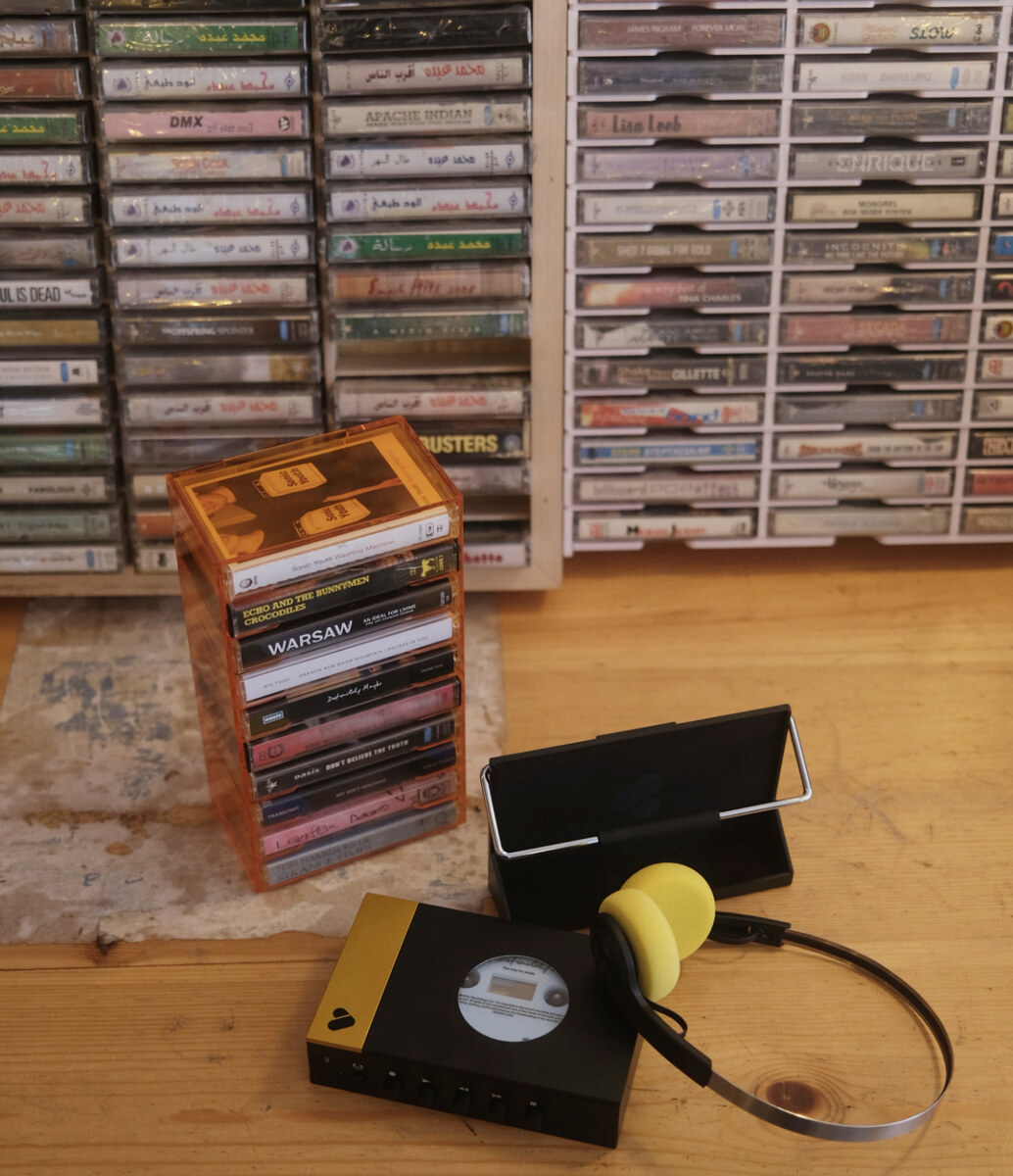
A retro cassette collection at Bohemia Records, showcasing a variety of genres and rare finds that capture the essence of analog music. (Photo by Fawaz Al-Sulaim)
Saja Al-Zahrani spoke about how analog media lets people embrace a slower, more mindful approach.
Al-Zahrani said: “There’s a warmth in vinyl’s crackle or film’s grain that digital can’t match.
“With analog, people reconnect with something real, something authentic.”
This tactile experience of using film or vinyl requires more focus, turning each interaction into a rewarding moment.
The value of analog media extends beyond nostalgia for Ebtsam Al-Dossary. Having grown up with film cameras, she sees them as reliable memory-keepers.
She said: “A camera doesn’t just store images; it keeps your memories safe. Digital files can vanish, but a physical photo endures.”
For Al-Dossary, the resurgence of analog formats is not just a trend; it’s a meaningful way to capture and remember moments more authentically.
As digital convenience reigns, this analog revival may underscore a collective yearning for experiences that slow us down, engage our senses, and encourage a mindful appreciation of art, music, and memories.
Whether it is the crackle of a vinyl record, the anticipation of developing a roll of film, or the tactile joy of a retro gadget, analog’s comeback offers a refreshing alternative to the fast-paced digital world.
In today’s digital landscape, the resurgence of analog offers a bridge between past and present, inviting us to reconnect with timeless traditions and meaningful experiences.
For enthusiasts across Saudi Arabia, this revival is about more than simply reverting to older technology — it is about rediscovering a different kind of connection, one in which every sound, image, and moment is fully appreciated.
Analog’s revival is redefining how Saudi society interacts with technology, pushing back against the trend of disposability and transient media. Each record played, photo developed, or gadget cherished represents a conscious choice to engage deeply with the experience.
Analog enthusiasts find joy in the imperfections, the weight of physical media, and the permanence these formats offer — qualities that digital often lacks.
With the rise in interest, local communities and businesses are emerging to cater to this renewed passion for analog. Haitham Studio and Bohemia Records are not just stores but spaces for Saudi artists, photographers, and music lovers to connect and share their passions. These communities thrive on a shared understanding of the value in slowing down and appreciating the process, rather than just the result.
In Riyadh, Al-Sharif has seen the effect firsthand. “We see customers coming back weekly, sometimes with friends, eager to develop their latest film rolls or browse the latest records,” he said. This sense of community is not just about shared interests; it is about shared values.
While the digital world offers unprecedented convenience and accessibility, analog serves a different purpose. Al-Sharif believes that both can coexist harmoniously. “Digital is essential for instant documentation, but analog is about timeless experiences,” he said.
Al-Zahrani, too, emphasizes that analog does not negate the value of digital but rather offers an alternative that complements it. “Both formats have their place, but analog asks something of you: it asks you to be present, to commit to the moment,” she said.
As Saudi Arabia invests in art, culture, and heritage, there is hope that analog’s value will continue to be recognized and supported. Whether through dedicated spaces like Haitham Studio or local events celebrating vintage tech, these efforts help sustain a trend that is not only about looking back but also about enriching the present.
The resurgence of analog formats is a reminder that technology can be more than just a tool. It can be an experience, a memory, and a form of art.













